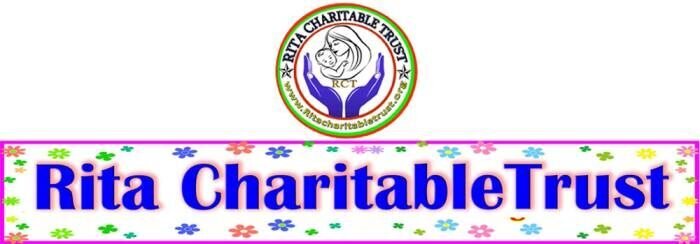Free Associate Desktop Publishing Course (6Months)
( DTP) Associate Desktop Publishing:

Associate – DTP in the IT-ITeS Industry is also known as Associate- Publishing, Agent- DTP
Brief Job Description: This job requires the individual to put research reports into standard templates. These templates could be in flash, macromedia, acrobat or html.
Personal Attributes: Individuals with strong command over flash, macromedia, acrobat or html are desirable, as this job requires publishing of content in these formats.

Provide/control access to publications:
Performance Criteria
To be competent, you must be able to:
PC1. check that publications, or specific versions of publications, are not already in your organization’s knowledge base, in order to avoid duplication
PC2. store publications in your organization’s knowledge base according to your organization’s policies, procedures and standards
PC3. check that different versions, including the most up-to-date versions, of publications are clearly indicated according to your organization’s standards for version control
PC4. provide access to publications in your organization’s knowledge base only to those who are entitled to access
PC5. provide support to appropriate people to access publications, where required
PC6. obtain advice and guidance on storing publications, version control and access issues from appropriate people, where required
PC7. comply with your organization’s policies, standards, procedures, guidelines and service level agreements (SLAs) when providing and controlling access to publications
Organizational Context
You need to know and understand: KA1. your organization’s policies, procedures, guidelines and standards for providing/controlling access to publications and your role in applying these KA2. your organization’s procedures for storing and updating versions of publications KA3. different types of publications available KA4. how to store, access and replace publications KA5. how to identify the most up to date version of publications KA6. your organization’s version control procedures and implications of not following these KA7. your organization’s policy and procedures for communicating with people KA8. your organization’s policies and procedures for sharing information on publications and the importance of complying with these KA9. who you may need to involve to provide feedback, advice and guidance KA10. the limits of your authority and actions required where requests for publications go beyond those limits KA11. systems and tools used for controlling access and how to use these B. Technical Knowledge You need to know and understand: KB1. different types of support people may need to access publications and how to provide this support KB2. how to deal with problems or potential conflicts with access to publications
Generic Skills

Writing Skills
You need to know and understand how to:
SA1. communicate with others in writing
Reading Skills
You need to know and understand how to:
SA2. follow guidelines, procedures, rules, standards and service level agreements
Oral Communication (Listening and Speaking skills)
You need to know and understand how to:
SA3. listen effectively and orally communicate information accurately
SA4. ask for clarification and advice from others
Professional Skills
Decision Making
You need to know and understand how to:
SB1. identify anomalies in data
Plan and Organize
You need to know and understand how to:
SB2. plan and organize your work to achieve targets and deadlines
Customer Centricity
You need to know and understand how to:
SB3. check that your own work meets customer requirements
Problem Solving
You need to know and understand how to:
SB4. seek clarification on problems from others
Analytical Thinking
You need to know and understand how to:
SB5. configure data and disseminate relevant information to others
Critical Thinking
You need to know and understand how to:
SB6. apply balanced judgments to different situations
Attention to Detail
You need to know and understand how to:
SB7. check your work is free from errors
SB8. get your work checked by others
Team Working
You need to know and understand how to:
SB9. work effectively in a team environment
Technical Skills
You need to know and understand how to:
SC1. agree objectives and work requirements
SC2. use information technology effectively to input and/or extract data accurately
SC3. identify and refer anomalies in data
SC4. store and retrieve information
SC5. keep up to date with changes, procedures and practices in your role
Publish content:
Performance Criteria
To be competent, you must be able to:
PC1. establish clearly the requirements of the content of publications
PC2. identify any issues with the requirements and clarify these with appropriate people
PC3. obtain and verify you have the correct versions of all content for publications
PC4. manipulate content into draft publications to meet requirements using standard templates and tools
PC5. review draft publications with appropriate people and incorporate their inputs
PC6. obtain approval of publications from appropriate people
PC7. create outputs of publications in formats required for production teams
PC8. provide clear instructions for production teams, where required
PC9. liaise with production teams to resolve any production issues
PC10. update your organization’s knowledge base with publications
PC11. obtain advice and guidance on publishing content from appropriate people, where required
PC12. comply with your organization’s policies, standards, procedures, guidelines and service level agreements (SLAs) when publishing content
Organizational Context
You need to know and understand: KA1. your organization’s policies, procedures and guidelines for publishing content and your role in applying these KA2. objectives, scope and budget for publishing and the importance of keeping within these boundaries KA3. your organization’s approval process for publishing content KA4. your organization’s production processes for publishing content and how to use these KA5. different types of content and publications and when to use these KA6. the importance of reviewing draft publications with others KA7. how to use feedback to improve publications KA8. who you may need to involve to provide feedback, advice and guidance on publications KA9. implications for your organization of publishing incorrect versions of content KA10. the purpose of liaising closely with production teams and the key stages when this must be done KA11. your organization’s knowledge base and how to access and update this
Technical Knowledge
You need to know and understand: KB1. types of issues that may arise with specifications of content and how to deal with these KB2. different types of tools, materials and software available for publishing and how and when to use these KB3. issues that may arise when publishing content and how to resolve these KB4. how to identify and avoid publication of duplicate content KB5. different types of content and publications and when to use these KB6. range of styles and formats used in publications including: your organization’s house style types and styles of publications templates KB7. intended audiences for publications and associated level of language required KB8. current practice for publishing content
Generic Skills
Writing Skills
You need to know and understand how to:
SA1. communicate with others in writing
SA2. complete accurate well written work with attention to detail
Reading Skills
You need to know and understand how to:
SA3. follow guidelines, procedures, rules, processes and service level agreements
Oral Communication (Listening and Speaking skills)
You need to know and understand how to:
SA4. listen effectively and orally communicate information accurately
SA5. ask for clarification and advice from others
Professional Skills
Decision Making
You need to know and understand how to:
SB1. identify anomalies in data
SB2. make a decision on a suitable course of action
Plan and Organize
You need to know and understand how to:
SB3. plan and organize your work to achieve targets and deadlines
SB4. provide instructions to others
Customer Centricity
You need to know and understand how to:
SB5. check that your own work meets customer requirements
Problem Solving
You need to know and understand how to:
SB6. seek clarification on problems from others
SB7. apply problem-solving approaches in different situations
Analytical Thinking
You need to know and understand how to:
SB8. configure data and disseminate relevant information to others
Critical Thinking
You need to know and understand how to:
SB9. provide opinions on work in a detailed and constructive way
SB10. apply balanced judgments to different situations
Attention to Detail
You need to know and understand how to:
SB11. check your work is free from errors
SB12. get your work checked by others
Team Working
You need to know and understand how to:
SB13. work independently and collaboratively
SB14. work effectively in a team environment
Technical Skills
You need to know and understand how to:
SC1. agree objectives and work requirements
SC2. use information technology effectively to input and/or extract data accurately
SC3. identify and refer anomalies in data
SC4. store and retrieve information
SC5. keep up to date with changes, procedures and practices in your field of expertise

Manage your work to meet requirements:
Performance Criteria
To be competent on the job, you must be able to:
PC1. establish and agree your work requirements with appropriate people
PC2. keep your immediate work area clean and tidy
PC3. utilize your time effectively
PC4. use resources correctly and efficiently
PC5. treat confidential information correctly
PC6. work in line with your organization’s policies and procedures
PC7. work within the limits of your job role
PC8. obtain guidance from appropriate people, where necessary
PC9. ensure your work meets the agreed requirements
Organizational Context
You need to know and understand: KA1. your organization’s policies, procedures and priorities for your area of work and your role and responsibilities in carrying out your work KA2. limits of your responsibilities and when to involve others KA3. your specific work requirements and who these must be agreed with KA4. the importance of having a tidy work area and how to do this KA5. how to prioritize your workload according to urgency and importance and the benefits of this KA6. your organization’s policies and procedures for dealing with confidential information and the importance of complying with these KA7. the purpose of keeping others updated with the progress of your work KA8. who to obtain guidance from and the typical circumstances when this may be required KA9. the purpose and value of being flexible and adapting work plans to reflect change B. Technical Knowledge You need to know and understand: KB1. the importance of completing work accurately and how to do this KB2. appropriate timescales for completing your work and the implications of not meeting these for you and the organization KB3. resources needed for your work and how to obtain and use these
Generic Skills
Writing Skills
You need to know and understand how to:
SA1. complete accurate work with attention to detail
Reading Skills
You need to know and understand how to:
SA2. read instructions, guidelines, procedures, rules and service level agreements
Oral Communication (Listening and Speaking skills)
You need to know and understand how to:
SA3. ask for clarification and advice from line managers
SA4. communicate orally with colleagues
Professional Skills
Decision Making
You need to know and understand how to:
SB1. make a decision on a suitable course of action
Plan and Organize
You need to know and understand how to:
SB2. plan and organize your work to achieve targets and deadlines
SB3. agree objectives and work requirements
Customer Centricity
You need to know and understand how to:
SB4. deliver consistent and reliable service to customers
SB5. check that your own work meets customer requirements
Problem Solving
You need to know and understand how to:
SB6. refer anomalies to the line manager
SB7. seek clarification on problems from others
Analytical Thinking
You need to know and understand how to:
SB8. provide relevant information to others
SB9. analyze needs, requirements and dependencies in order to meet your work requirements
Critical Thinking
You need to know and understand how to:
SB10. apply judgments to different situations
Attention to Detail
You need to know and understand how to:
SB11. check your work is complete and free from errors
SB12. get your work checked by peers
Team Working
You need to know and understand how to:
SB13. work effectively in a team environment
Technical Skills
You need to know and understand how to:
SC1. use information technology effectively, to input and/or extract data accurately
SC2. identify and refer anomalies in data
SC3. store and retrieve information
SC4. keep up to date with changes, procedures and practices in your role

Work effectively with colleagues:
Performance Criteria
To be competent, you must be able to:
PC1. communicate with colleagues clearly, concisely and accurately
PC2. work with colleagues to integrate your work effectively with them
PC3. pass on essential information to colleagues in line with organizational requirements
PC4. work in ways that show respect for colleagues
PC5. carry out commitments you have made to colleagues
PC6. let colleagues know in good time if you cannot carry out your commitments, explaining the reasons
PC7. identify any problems you have working with colleagues and take the initiative to solve these problems
PC8. follow the organization’s policies and procedures for working with colleagues
Organizational Context
You need to know and understand: KA1. your organization’s policies and procedures for working with colleagues and your role and responsibilities in relation to this KA2. the importance of effective communication and establishing good working relationships with colleagues KA3. different methods of communication and the circumstances in which it is appropriate to use these KA4. benefits of developing productive working relationships with colleagues KA5. the importance of creating an environment of trust and mutual respect in an environment where you have no authority over those you are working with KA6. where you do not meet your commitments, the implications this will have on individuals and the organization
Technical Knowledge
You need to know and understand: KB1. different types of information that colleagues might need and the importance
of providing this information when it is required KB2. the importance of understanding problems from your colleague’s perspective and how to provide support, where necessary, to resolve these
Generic Skills
Writing Skills
You need to know and understand how to:
SA1. complete accurate, well written work with attention to detail
SA2. communicate effectively with colleagues in writing Reading Skills
You need to know and understand how to:
SA3. read instructions, guidelines, procedures, rules and service level agreements
Oral Communication (Listening and Speaking skills)
You need to know and understand how to:
SA4. listen effectively and orally communicate information accurately
SA5. ask for clarification and advice from line managers
. Professional Skills
Decision Making
You need to know and understand how to:
SB1. make a decision on a suitable course of action
Plan and Organize
You need to know and understand how to:
SB2. plan and organize your work to achieve targets and deadlines
Customer Centricity
You need to know and understand how to:
SB3. check that your own work meets customer requirements
SB4. deliver consistent and reliable service to customers
Problem Solving
You need to know and understand how to:
SB5. apply problem solving approaches in different situations
Critical Thinking
You need to know and understand how to:
SB6. apply balanced judgments to different situations
Attention to Detail
You need to know and understand how to:
SB7. check your work is complete and free from errors
SB8. get your work checked by peers
Team Working
You need to know and understand how to:
SB9. work effectively in a team environment
SB10. work effectively with colleagues and other teams
SB11. treat other cultures with respect
Technical Skills
You need to know and understand how to:
SC1. identify and refer anomalies
SC2. help reach agreements with colleagues
SC3. keep up to date with changes, procedures and practices in your role
Guidelines for Assessment:
- Criteria for assessment for each Qualification Pack (QP) will be created by the Sector Skill Council (SSC). Each performance criteria (PC) will be assigned Theory and Skill/Practical marks proportional to its importance in NOS.
- The assessment will be conducted online through assessment providers authorised by SSC.
- Format of questions will include a variety of styles suitable to the PC being tested such as multiple choice questions, fill in the blanks, situational judgment test, simulation and programming test.
- To pass a QP, a trainee should pass each individual NOS. Standard passing criteria for each NOS is 70%.








